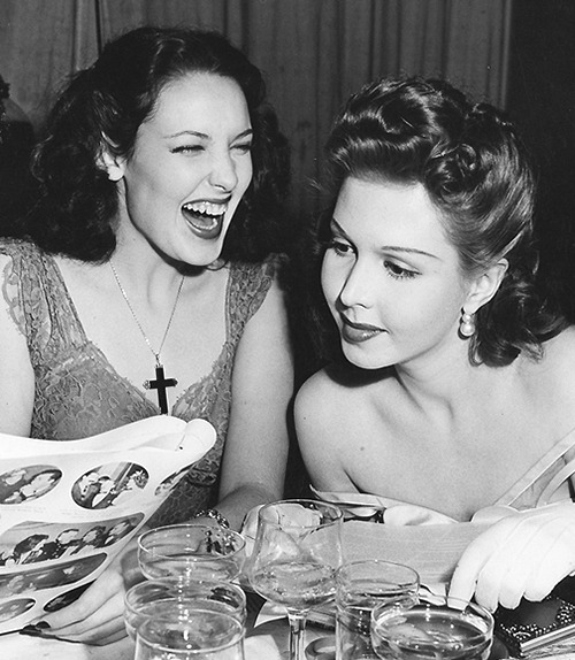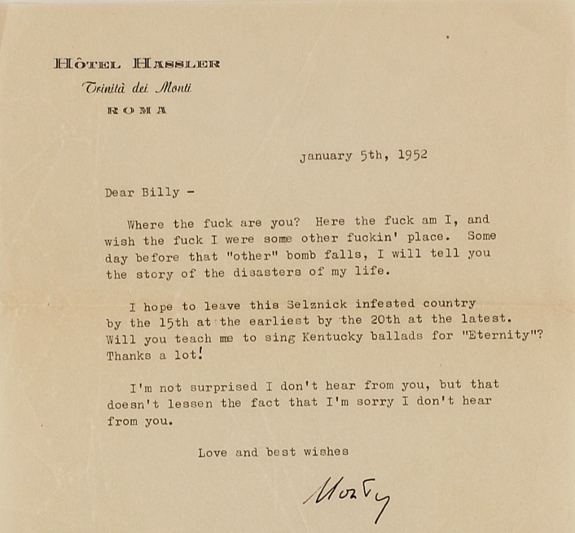Linda Darnell hated the Hollywood social scene and made only one close friend in Hollywood, actress/dancer Ann Miller. As young starlets the two had first met at a benefit on Catalina Island and immediately got along. They had much in common, both being from Texas and having started their careers at a very young age. They both lived with their mothers, who also befriended each other. Linda and her mother Pearl often visited the Millers up in the Hollywood Hills. "While the two mama hens clucked," Ann recalled, "we would gossip about our two studios and all the goings-on there." (Linda was under contract to 20th Century-Fox while Ann had signed with Columbia.) The close friendship between Linda and Ann lasted for decades until Linda's untimely death in April 1965.
 |
| Linda Darnell (l) and Ann Miller |
The story of Linda Darnell's death is a tragic one. Linda was staying at the home of her friend and former secretary Jeanne Curtis when the house caught fire. The women had stayed up late watching one of Darnell's old films on television (the 1940 Star Dust) and afterwards went upstairs to go to bed. They woke up to the fire, which had started in the living room. Curtis and her daughter escaped through the second-floor window while Linda, who was too afraid to jump, had gone downstairs trying to escape through the front door. Firemen eventually found her lying behind the living room sofa, still alive but with burns over 90% of her body. Immediately rushed to the hospital, the actress underwent surgery but ultimately couldn't be saved. On 10 April 1965 —thirty-three hours after the fire— Linda Darnell passed away, only 41 years old.
_______
While Darnell was in the hospital, letters, cards and telegrams from all over the world came pouring in to wish her well. Her friend Ann Miller sent her the following telegram, still hoping and praying Linda would recover.
Dearest Linda. If there's anything that Mom and I can do, we'll be there to help. In my heart you are my dearest friend in the whole world and always will be. We are saying prayers for your recovery. Love, Annikat and Mommikat.
After Linda's death, Ann sent another telegram. The telegram was read during the second memorial service held in Burbank on 8 May 1965.
To my dear friend Linda, lover of life and of people, a giver and not a taker. You will always live in our hearts. Farewell Tweedles. Love always, Annie and Mother K.
Source: Hollywood Beauty: Linda Darnell and the American Dream (1991), by Ronald L. Davis.





.jpg)
.jpg)

.jpg)

.jpg)

.jpg)
.jpg)
.jpg)